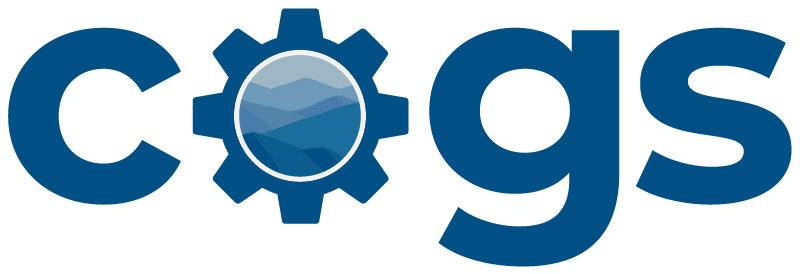How to Use AI in Your Business Without Complexity
Why AI is Essential for Businesses Today
Small and medium-sized businesses (SMEs) spend an average of 45.5 hours per week on operations. Of those, 16 hours are spent on administrative tasks and another 10-20 hours on marketing. AI and automation can dramatically cut down these inefficiencies, freeing up valuable time and resources for growth and strategy.
AI implementation doesn’t require deep technical knowledge—modern AI tools and automation platforms make it accessible to businesses of all sizes. From automated scheduling to AI-driven lead management, here’s how you can leverage AI to streamline your business operations.
1. AI-Powered Agents: Your Automated Employee
AI agents act as virtual employees that can handle various operational tasks, reducing human workload and increasing efficiency.
How AI Agents Work
Task Automation: Assign and execute tasks like scheduling meetings, sending reminders, and responding to emails.
Customer Interaction: AI chatbots can answer customer questions, guide them through purchases, and collect feedback.
Workflow Automation: AI tools can track project progress, assign tasks to employees, and ensure deadlines are met.
Example: An AI scheduling agent can automatically arrange client meetings, adjust time slots based on availability, and send reminders—all without manual input.
2. Automating Data Entry & Management
Data management is one of the most time-consuming tasks for businesses. AI can streamline this process, reducing manual errors and improving efficiency.
How AI Automates Data Entry
Extracts key information from emails, forms, or scanned documents.
Automatically inputs data into CRMs, spreadsheets, or databases.
Updates and syncs records across multiple systems.
Example: Instead of manually entering new leads into a CRM, AI can extract client information from emails and input them directly into your sales system.
3. Enhancing Team Communications with AI
AI-driven communication tools can improve collaboration and ensure that team members are always in sync.
How AI Enhances Team Communication
Chatbots for Internal Support: Employees can ask AI-powered chatbots questions about company policies, HR guidelines, or task-related details.
Smart Notifications & Summaries: AI tools can summarize long email threads, highlight important updates, and notify employees of urgent messages.
Automated Meeting Notes: AI assistants can transcribe meetings, summarize key takeaways, and distribute action items to the team.
Example: A team communication bot can monitor Slack or Microsoft Teams, providing reminders, answering queries, and summarizing discussions.
4. AI for Task Assignment & Workflow Management
AI ensures tasks are assigned efficiently and completed on time by automating task delegation based on workload and priority levels.
How AI Can Assign Tasks
Intelligent Prioritization: AI analyzes workloads and distributes tasks based on deadlines, team availability, and skill sets.
Automated Progress Tracking: AI can monitor ongoing projects, send alerts for overdue tasks, and suggest timeline adjustments.
Predictive Resource Allocation: AI can anticipate upcoming workload spikes and suggest team adjustments to balance efforts.
Example: AI workflow management tools like Zapier can integrate with project management software (Trello, Asana) to automatically assign tasks as milestones are completed.
5. AI-Powered Lead Management & CRM Automation
Managing customer relationships can be time-intensive, but AI-powered CRMs simplify the process by automating lead capture, nurturing, and follow-ups.
How AI Enhances Lead Management
Lead Vetting: AI qualifies leads by analyzing customer behavior and interactions.
Automated Outreach: AI can send follow-up emails, schedule calls, and personalize outreach efforts.
Customer Tracking: AI monitors engagement, providing insights into which leads are more likely to convert.
Example: AI-powered CRMs can automatically send personalized email responses to new inquiries, book appointments, and move prospects through the sales funnel.
6. AI Chatbots for Customer Service & Sales
AI chatbots are transforming customer engagement by providing instant responses and guiding users through their journey.
How AI Chatbots Improve Business Operations
24/7 Customer Support: AI chatbots handle FAQs, troubleshoot issues, and escalate complex inquiries to human agents.
Lead Generation: AI collects visitor details and qualifies leads based on interactions.
E-commerce Assistance: AI chatbots help users find products, process orders, and suggest relevant items.
Example: A plumbing company could use an AI chatbot to handle common service inquiries, schedule appointments, and collect customer feedback.
7. AI-Driven Marketing & Content Creation
AI-powered marketing tools can help businesses automate content creation, social media management, and targeted advertising.
How AI Enhances Marketing
Automated Blog & Social Media Posts: AI can generate blog ideas, write articles, and schedule posts.
SEO Optimization: AI tools analyze keywords and suggest content improvements.
Ad Performance Optimization: AI tracks ad engagement and automatically adjusts campaigns for better performance.
Example: AI-powered content creation tools like Jasper or Copy.ai can generate engaging blog posts and product descriptions based on minimal input.
8. Practical Applications of AI in Different Industries
AI is not just for tech companies—it has practical applications in nearly every industry.
Plumbers & Electricians
AI chatbots can handle customer inquiries, book appointments, and provide troubleshooting tips.
Automated scheduling systems can optimize technician routes and reduce travel time.
AI-driven CRMs can track service history and follow up with customers for maintenance reminders.
Retail Stores
AI-powered inventory management tools can predict demand and automate restocking.
AI chatbots can assist customers with product recommendations and real-time support.
Personalized marketing campaigns can be automated based on customer preferences and purchase history.
Restaurants
AI-powered ordering systems can take online reservations, process orders, and predict peak hours.
Chatbots can handle customer inquiries, provide menu details, and recommend popular dishes.
AI-driven analytics can optimize menu pricing based on customer demand and seasonal trends.
9. Implementing AI in Your Business: Next Steps
Start with No-Code AI Automation
Platforms like Zapier or Make.com make AI automation easy to implement without programming knowledge. These tools integrate with thousands of apps, allowing businesses to automate workflows instantly.
Invest in Custom AI Solutions
If your business has unique requirements, consider custom AI automation services to develop tailored solutions that fit your operations.
Train Your Team on AI Usage
Adopting AI is only effective if your team understands how to use it. Provide training sessions and ongoing support to maximize efficiency.
Need Help Implementing AI in Your Business?
At COGS, we specialize in creating simple, custom AI automation solutions that save businesses time, improve efficiency, and reduce manual workload. No complexity, simple steps you can see.
Want to see AI in action? Discover how AI can revolutionize your business.
By leveraging AI in your daily operations, you can optimize productivity, reduce overhead costs, and stay ahead of the competition. Start small, scale as needed, and watch your business transform with AI-driven automation.

